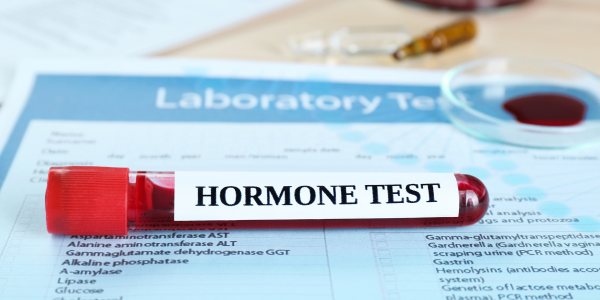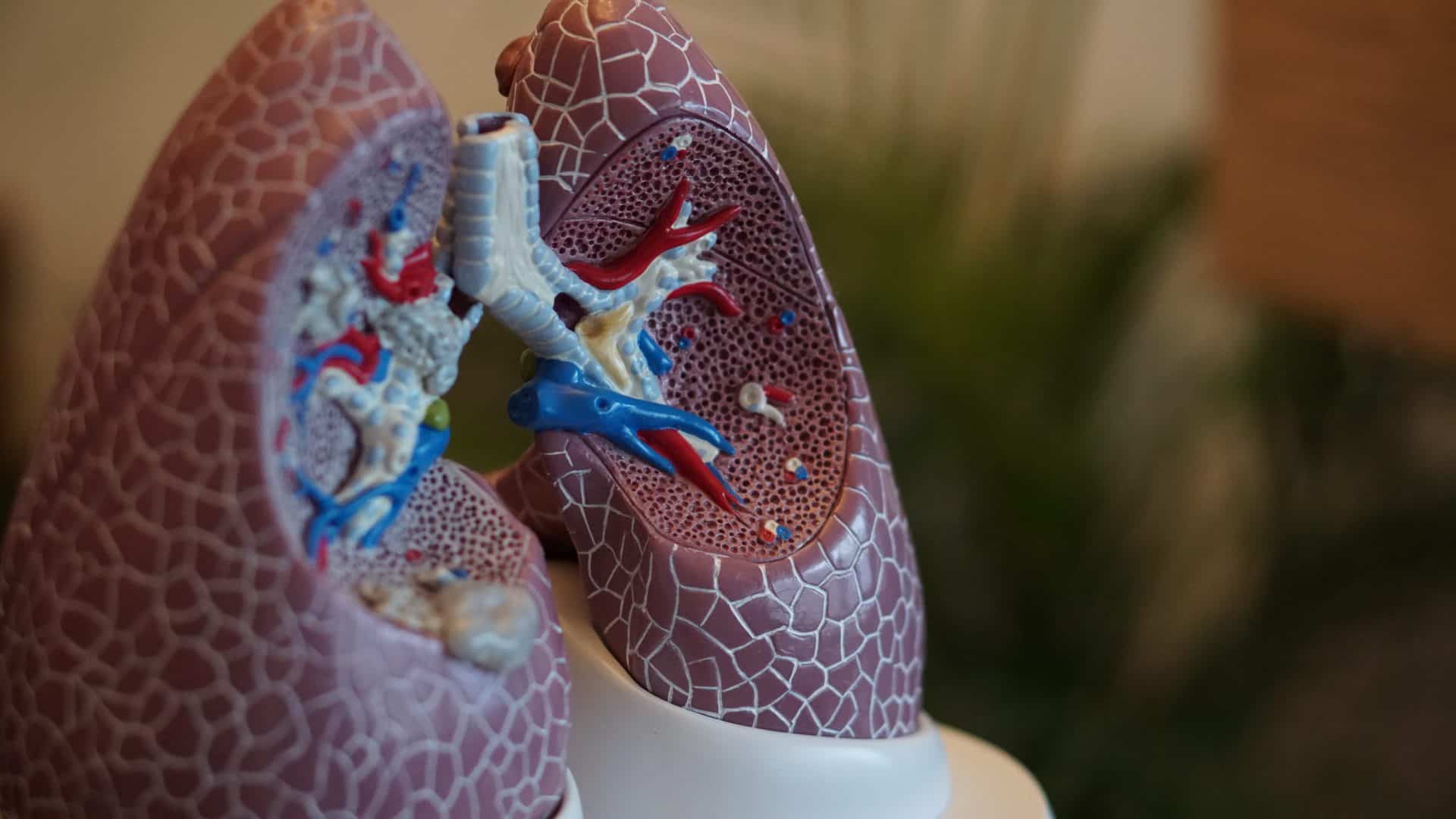

Autoimmune Diseases of the Lungs
In Part 1 we looked in-depth at how Systemic lupus erythematosus (SLE) and Sjogren’s Syndrome can affect your organs. In Part 2 we looked at autoimmune diseases of the liver and kidneys.
You may be taking your lungs for granted.
You know they help you breath, and you may know they supply oxygen to your bloodstream while removing the waste product carbon dioxide. But that’s not all. Your lungs are a powerful defence against foreign invaders. Inhalation can bring all sorts of bacteria and toxins into your lungs. Your lungs have a close link with your immune system to help remove unwanted particles that can’t be filtered out, and mount a defense system against infections.
But sometimes your immune system can cause issues with your lungs when you have an autoimmune disease. Systemic lupus erythematosus (SLE) can cause pleuritis, where the lining that covers the outside of the lungs becomes inflamed. Lupus can also lead to chronic diffuse interstitial lung disease through repeated bouts of pneumonitis – inflammation within the lung.
And sometimes inflammation or repeated infections can cause an autoimmune reaction in the lung, resulting in symptoms such as shortness of breath, wheezing and chest pain.
When the health of your lungs is compromised it can be scary. Especially if it’s caused by your own body attacking itself.
What Is Wegener’s Granulomatosis?
Wegener’s granulomatosis is an autoimmune disease characterized by inflammation in the blood vessels – affecting your kidneys, ears, nose, sinuses, and lungs. It’s also known as Granulomatosis with Polyangiitis (GPA). The inflammation slows the flow of blood to the affected organs, and the affected tissues form what are called granulomas.
Granulomas are a defensive immune system mechanism where tissue made up of special immune cells wall off an invader such as a virus. This stops the threat from spreading. Your lungs are an area where granulomas can occur frequently, but in the case of Wegener’s granulomatosis your immune system is overworking to wall off every small threat – and a large number of granulomas can affect the function of your lungs.
Symptoms of Wegener’s granulomatosis can include:
- Blocked or runny nose, frequent nosebleeds, sinusitis
- Earache and loss of hearing
- A cough that doesn’t go away, shortness of breath, wheezing, chest pain
- Fever
- Fatigue
- Weight loss or lack of appetite
- Joint pain
- Blood in urine
- Rash, bruising, or small purple spots on the skin
- Swollen eyelids, conjunctivitis, blurry vision
- Blood in stool, abdominal pain, diarrhea
- Numbness in fingers or toes
Wegener’s granulomatosis is a serious condition that can cause damage to your body, so it’s important to see a doctor if you have a number of these symptoms.
How Is Wegener’s Granulomatosis Diagnosed?
Wegener’s granulomatosis can be tricky to diagnose. There is not just one test, so your doctor may need to run a few different diagnostics to gain the bigger picture before diagnosing the disease.
Your doctor may order the following tests:
- Physical exam – to check the affected parts of the body and listen to your lungs with a stethoscope.
- Blood test – the following tests are useful to rule out other autoimmune diseases but also to confirm Wegener’s granulomatosis:
- C-reactive protein and erythrocyte sedimentation rate – high levels indicate inflammation.
- Anti-neutrophil cytoplasmic antibodies – high levels can often indicate Wegener’s granulomatosis.
- Complete blood count (CBC) – to check for anemia, which is a common symptom of the disease.
- BUN, Creatinine, ACR (Albumin to Creatinine Ratio), and GFR (glomerular filtration rate) – to check kidney function and whether the disease is affecting the kidneys.
- Urine test – to check kidney function as high levels of red blood cells or protein indicate the disease has progressed to the kidneys.
- Imaging tests – to check your lungs, kidneys, and blood vessels for the disease:
- Chest x-ray – to take a look at your lungs.
- MRI – provides a more detailed look at the lungs and other organs such as the kidneys.
- Computed tomography (CT) scan – provides a detailed look at the blood supply to your organs, as well as assessing the organs themselves.
- Pulmonary function tests – to check your lung volumes and capacities.
- Biopsy – occasionally a biopsy of an afflicted organ may need to be taken to confirm your diagnosis. This can include a biopsy of lungs or kidneys.
Early treatment before permanent damage occurs is vital. Your doctor needs to monitor your progress after initial recovery because relapses of the disease are common, but with careful lifestyle changes, it’s possible to lead a normal life.
What Is Sarcoidosis?
Like Wegener’s granulomatosis, sarcoidosis occurs when granulomas form in your body, primarily in your lungs, lymph nodes, and skin. Sarcoidosis can also affect your eyes, heart, and other organs, but is accepted as being largely less serious than Wegener’s granulomatosis. Of course, all autoimmune diseases can have a poor effect on your life, regardless of severity.
Sarcoidosis may be triggered by an intense immune reaction to substances such as chemicals, dust, and infection. It can also be triggered by your immune system mistakenly attacking healthy tissue.
Sarcoidosis symptoms can include:
- Weight loss
- Fatigue
- Swollen lymph nodes
- Swelling and pain in joints
- Shortness of breath
- A dry cough that doesn’t go away
- Wheezing
- Chest pain
- Warm and tender reddish bumps on the shins or ankles
- Lesions on the nose, cheeks, or ear
- Nodules in the skin under scars or tattoos
- Photosensitivity, blurred vision, red itchy eyes, eye pain
- Fainting
- Irregular heartbeat and/or palpitations
As sarcoidosis can lead to long-term problems, it’s important that you seek a diagnosis and advice from a doctor on how to manage the disease.
How Is Sarcoidosis Diagnosed?
Sarcoidosis can be difficult to diagnose when it is in the early stages, but diagnosis tests are still useful to rule out other diseases.
Your doctor may use the following tests as a basis for diagnosis:
- Physical exam – Your doctor can check your lymph nodes, listen to your heart and lungs, and examine your skin rash or lesions.
- Blood tests – your doctor may order:
- BUN, creatinine, ACR (albumin to creatinine ratio) and GFR (glomerular filtration rate) – to check kidney function.
- ALT (alanine transaminase), AST (aspartate aminotransferase), ALP (alkaline phosphatase), bilirubin– to check liver function.
- Chitotriosidase – significantly higher in sarcoidosis patients.
- Inflammation markers – such as CRP and ESR.
- Complete Blood Count to check levels of white blood cells and red blood cells.
- Calcium levels.
- Urine test – to check kidney function.
- Pulmonary function tests – to check your lung volumes and capacities.
- Imaging tests:
- Chest x-ray – a way to check your lungs and heart.
- Computerized tomography (CT) – to check your lungs in more detail.
- Positron emission tomography (PET) scan or magnetic resonance imaging (MRI) – to check your heart or central nervous system.
- Electrocardiogram – this test can monitor the heart and detect heart problems.
- Eye exam – to check if the disease is affecting your eyes.
- Biopsy – A biopsy may be necessary to examine the granulomas, providing a definitive diagnosis of sarcoidosis.
Treatment depends on how severe your signs and symptoms of sarcoidosis are, and how far it’s progressed. Early intervention is key, alongside making necessary lifestyle changes.
What Can Functional Medicine Do for My Autoimmune Disease?
A diagnosis of autoimmune disease can be overwhelming, and it may feel impossible to start managing your health when you feel terrible. Because functional medicine is more focused on figuring out the root cause of the disease, your doctor can concentrate on treating the underlying causes of immune system dysregulation and inflammation, not just managing your symptoms. Tailormade lifestyle recommendations help you improve your health, rely less on medication, and start living again!
We can help you in tackling the underlying causes of autoimmune disease. If you’re interested in checking out functional medicine in the Phoenix, Scottsdale, Paradise Valley, Arizona area, call to book an appointment at 602 892-4727 or fill out our contact form. If you’re not local to us, why not try 7 Weeks to Your Healthiest Self – our masterclass that provides you with the benefits of functional medicine – from the comfort and privacy of your own home.
Share:
Social Media
Most Popular Posts
Subscribe To Our Newsletter
Related Posts

Understanding the Essential Labs for Women on Hormone Replacement Therapy (HRT)
So what are the minimum labs we’re looking at when we do hormone replacement therapy? We obviously want to look at an estrogen level, so

How to figure out the right amount of HRT in women
What about checking lab values when you’re on hormone replacement therapy? I do find it to be helpful, but we also want to consider symptoms.

Did you know there’s a difference between food allergies, sensitivities, and intolerances?
Did you know that there’s a difference between food allergies, food sensitivities and food intolerances? Food allergies, the reactions tend to happen pretty immediately and

Food Intolerances: Symptoms, Causes, and How They Differ From Food Allergies and Sensitivities
Eating a wide variety of whole foods is a key way to ensure a nutrient-rich diet full of vitamins and minerals. But what happens when
